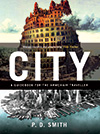Hippocratic oath for scientists?
20 September 2007 | atomic bomb, Brecht, H-bomb, Rotblat, Science, Soddy | 7 comments
I was very interested to hear that the British government's chief scientific advisor, Professor Sir David King, has set out a universal ethical code for scientists. As well as asserting the importance of honesty, integrity and responsible communication, it also calls upon scientists to "Minimise and justify any adverse effect your work may have on people, animals and the natural environment".
Bertolt Brecht included the idea of a Hippocratic oath for scientists in the penultimate scene of his play Life of Galileo. The idea of an oath that committed scientists to using their knowledge solely for the benefit of humanity occurred to him before the atomic bombs were dropped on Japan. But it was only after the hydrogen bomb was developed that this idea was incorporated into the 1955 version of the play.
By then others, including Rutherford's co-worker on radioactivty at the dawn of the atomic age, Frederick Soddy, had publicly called for scientists to take such a Hippocratic oath. In 1969 philosopher Karl Popper would follow suit, as did physicist and peace campaigner Joseph Rotblat, who had taken the courageous decision to leave Los Alamos as soon as it became clear that Germany was incapable of developing an atomic bomb.
David King's ethical code doesn't go as far as Brecht would have liked. But it's a step in the right direction. For, as Rotblat has rightly said, “a scientist is a human being first, and a scientist second”.
You can read reports on the ethical code on the British Association site and BBC News.


Kaytie M. Lee | 20 September 2007
What happens if a scientist breaks the code? Will there be ramifications, or is loss of reputation the punishment? (Which, given the science community, could be severe enough.)
I wish research companies themselves would be held to the same standard.
PD Smith | 20 September 2007
Good question! I notice the Council for Science and Technology have said it will be difficult to enforce such a code.
But surely it's a bit like arms limitation treaties: you have to start somewhere and even limited agreements represent progress.
I like the idealism of it too. If scientists rediscovered some of the idealism they used to have, then people might begin to respect them a bit more...
David Thorpe | 21 September 2007
As it's the 50th anniversary of the treaty instigated by a group of scientists to protect Antarctica for the good of mankind and scientific study, they could start by doing the same for the Arctic region, now subject of a land grab by nations greedy for the resources being exposed to exploitation by climate change - and which would only accelerate it.
David Thorpe | 21 September 2007
The code should take its cue from environmental CSR practice, which has to look at the whole life cycle of a product in its impact on people and the environment. Scientists should endeavour to aim to minimise to zero negative impacts of their activities - including 'inadvertent' ones - and maximise benefical impacts.
PD Smith | 21 September 2007
yes, I agree that minimising the effect of scientific work on the environment is vital. But then I guess you could say we all have to keep that in mind: deciding whether to buy a car, for example.
I just think it would be great to see scientists out there, setting a good example...
Thomas R. | 27 September 2007
There seems to have been done much research in the past years to classify and measure peoples ethical level and its development, e.g.:
http://moral.wjh.harvard.edu/
https://implicit.harvard.edu/implicit/
Exist studies about groups of scientists or students of science? How does the moral thinking of students develop during college and university? Causes the competetive uphill-fighting in the sci community a preselection of the participants moral?
PD Smith | 28 September 2007
Hi Thomas - interesting question(s)! I'm afraid to say I don't know the answer(s)...If anyone has any comments about this, I'd be interested to see them!